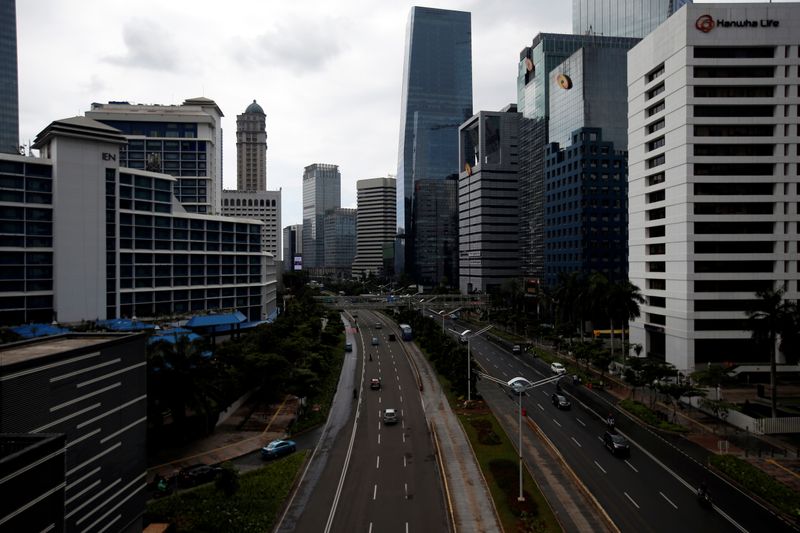
JAKARTA (Reuters) – S&P Global Ratings on Friday revised Indonesia’s credit rating outlook to “negative” from “stable”, indicating the rising financial risks the country faces as it ramps up government spending in response to the coronavirus outbreak.
S&P had raised Indonesia’s debt rating to BBB in May 2019, on a par with ratings awarded by two other major credit rating agencies Fitch and Moody’s.
A negative outlook means an expectation that a credit issuer’s finances may worsen and the agency may downgrade its rating as its next move.
“Indonesia’s external position has weakened following considerable depreciation of the rupiah, and the government’s debt burden will be materially higher over the next few years owing to strong counter-cyclical fiscal measures,” S&P said.
It said it would lower the country’s rating if the economy suffers a deeper or more prolonged slowdown over the next two years, or if fiscal or external positions deteriorate more than expected, though it would revise the outlook back to stable if they improve.
Indonesia’s rupiah depreciated rapidly last month but has since pared its losses. It is down about 10% so far this year and closed at 15,400 per dollar on Friday.
Meanwhile, the government has shifted its budget dramatically to increase spending on healthcare and welfare programmes to respond to the coronavirus outbreak, which as of Friday has infected 5,923 people and killed 407.
The government has issued an emergency regulation to waive a fiscal deficit ceiling of 3% of GDP to allow for the fiscal deficit to widen to 5.07% in 2020.
S&P expects a deficit of 4.7% of GDP this year, still a multi-decade high, and two more years of deficits above 3%.
The government’s outlook for 2020 GDP growth is 2.3%. The rating agency expects 1.8%, the weakest since 1999.
Indonesia’s central bank governor Perry Warjiyo told a call with investors that S&P had stressed some positive points, mainly on Indonesia’s record of prudent economic management.
“Of course there are some negative notes on that because of the short-term condition,” Warjiyo said, adding Bank Indonesia and the finance ministry were committed to ensuring their policies to weather the virus outbreak would remain prudent.
Satria Sambijantoro, an economist at brokerage Bahana Sekuritas, said the fact that Indonesia was not downgraded by S&P despite the significant loosening of fiscal rules was a victory, noting downgrades for some Latin American economies.
Source: Economy - investing.com



